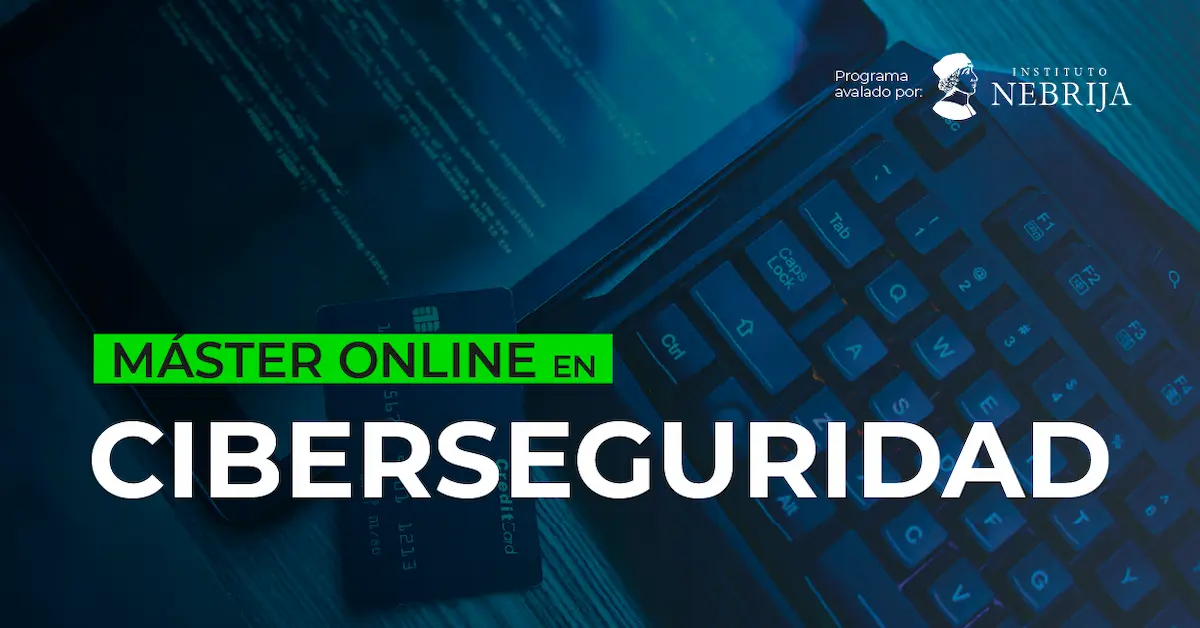In today's cybersecurity landscape, the role of the CISO (Chief Information Security Officer) is more critical than ever. Carlos LeonardoHead of National CSIRT in the Dominican Republic, and lecturer in the Master in Cybersecurity, addressed the main challenges faced by organisations in protecting their digital infrastructures and the key role played by their CISO.

In this article we will explore the key issues, and answer some of the most frequently asked questions about cybersecurity training and career opportunities.
Today's CISO challenges and the importance of cybersecurity
Carlos Leonardo, director of the National Cyber Incident Response Team of the Dominican Republic, shared his experience in digital security management. Among the main challenges facing CISOs today, he highlighted:
- Threat developments: With the rise of artificial intelligence, quantum computing and 5G networks, cyberattacks have become more sophisticated. Cybercriminals can now automate attacks, evade traditional defences and compromise systems in a matter of minutes. The response to these threats must be agile and adaptive, integrating technologies such as behavioural analysis and proactive anomaly detection. In addition, the cybercrime landscape has evolved with the professionalisation of crime, giving rise to models such as ransomware-as-a-service, where even non-technical actors can launch devastating attacks.
- Translation of technical risks into business terms: It is crucial that cybersecurity managers communicate risks in language that decision-makers can understand. This involves demonstrating how an attack can affect business operations, brand reputation and customer trust. A successful CISO not only masters the technology, but also understands the business strategy and is able to justify security investments from a financial perspective.
- Justification for investment in cybersecurity: Organisations are increasingly demanding that cyber security spending translates into return on investment (ROI). This is achieved by demonstrating how preventative and incident response measures reduce financial losses from attacks and regulatory sanctions. Companies that have suffered data breaches experience losses in the millions not only in terms of fines, but also in customer churn and loss of investor confidence.
- Organisational resilience: It is not enough to prevent attacks, but it is also necessary to ensure business continuity in the event of a security breach. Implementing disaster recovery plans and automating incident response are critical to minimising the impact of any security incident. A key strategy in this regard is the Zero Trust approach, which assumes that no network or user is completely trusted, thus reducing the risks of unauthorised access.
These challenges have made cybersecurity one of the most sought-after and well-paid areas in the technology sector. But what does it take to work in this field?
What do you have to study to work in cybersecurity?
Cybersecurity is a multidisciplinary field that combines technical knowledge with management skills. Some of the key skills include:
- Offensive and defensive security: Penetration testing, ethical hacking and incident response. Professionals must learn to think like attackers to effectively protect systems and anticipate potential vulnerabilities. Today, cybersecurity Red Teams work alongside Blue Teams on simulations of real attacks to assess a company's resilience.
- Digital forensics: Digital evidence analysis and cyber incident management. In the event of an intrusion, it is critical to track malicious activity, identify entry points and collect evidence to mitigate future attacks. A digital forensic expert can determine the cause of an attack and strengthen defences to prevent recurrences.
- Rules and regulations: GDPR, ISO 27001, NIST and other compliance frameworks. Companies must align with these standards to avoid penalties and ensure data protection. Cybersecurity regulations are becoming increasingly stringent, forcing companies to keep up to date with compliance regulations.
- Risk management and governance: Design of cybersecurity strategies aligned with business objectives. A risk-based approach optimises resources and prioritises critical areas of protection. Today, CISOs must work closely with finance and human resources departments to integrate cybersecurity at all levels of the organisation.
One of the most comprehensive programmes for training in this field is the Online Master in Cybersecurity IMMUNE, where theoretical knowledge is combined with real practices in a business environment.
How much is to be gained in cybersecurity?
The cybersecurity sector is one of the highest paid in the technology sector. According to various salary reports:
- A junior cyber-security analyst can earn between 30,000 and 45,000 euros per year.
- An offensive security specialist or digital forensic specialist can achieve the following 60,000 per year.
- A CISO in a large enterprise can exceed the 100,000 per yeardepending on the sector and experience.
In addition, demand for professionals continues to rise, prompting companies to offer competitive salaries and additional benefits, such as ongoing training and specialised certifications. In the United States, experienced cybersecurity experts can command salaries in excess of 200,000 per year.
Where to study cybersecurity in Spain?
IMMUNE Technology Institute's Master's Degree in Cybersecurity offers a practical and up-to-date approach, with expert lecturers such as Carlos Leonardocombining real-world experience and methodology. hands-on.
The programme includes:
- Learning based on real projects.
- Simulations of attacks and defences in controlled environments.
- Access to a community of cybersecurity professionals.
- Preparation for recognised certifications international level, such as CEH, CISSP and OSCP.
- Training in cyber-intelligence and threat analysis.
Conclusion
Cybersecurity is a constantly evolving field, with great opportunities for those who prepare themselves properly. As Carlos Leonardo pointed out in his presentation, the challenges for CISOs and practitioners The skills of the industry include not only the mastery of digital protection techniques, but also the ability to communicate, lead and justify security investments.
For those interested in training and gaining access to this exciting world, programmes like the Cybersecurity Master IMMUNE's courses represent an excellent option for acquiring the necessary skills and making your way into one of the most in-demand professions of the future.
